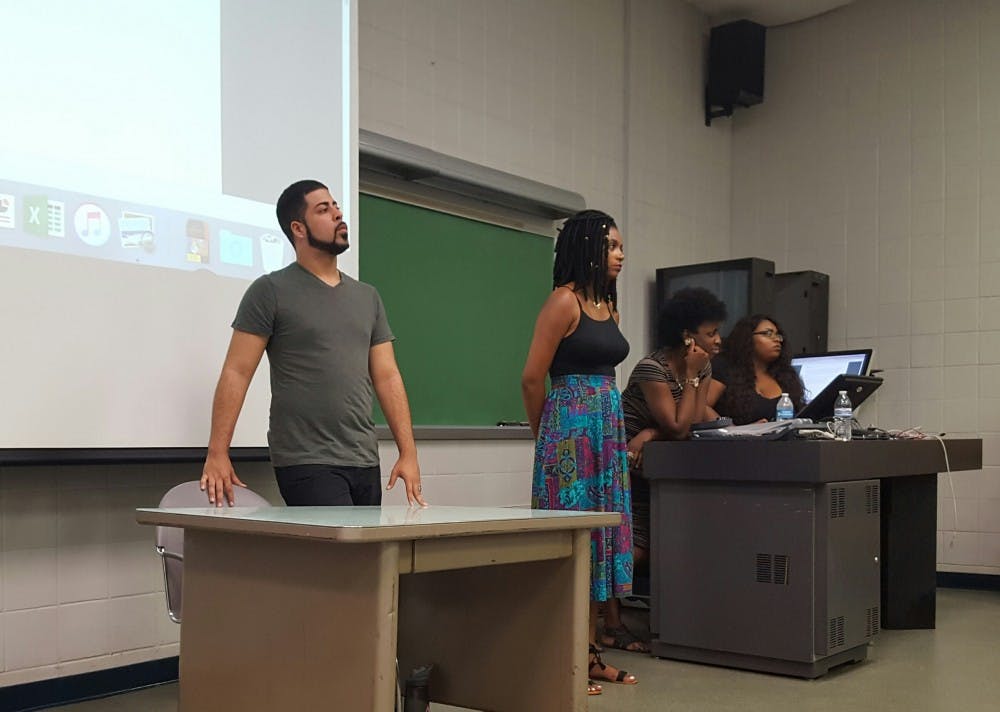The Student Government Association held an open forum Sept. 6 in response to a racist note left at the door of a former Ball State student.
The note, containing racial slurs, was found on the doorstep of a house near campus and surfaced on Twitter Sept. 3.
This note was at the center of discussion
Groups in attendance included the NAACP, Today’s Black Women, Women of Color, Men of Color, the Black Student Association, Impact, and the Progressive Student Alliance. James Wells, the SGA president, and Gabby Lloyd, the SGA secretary of diversity, were also there.
“As student body president I really feel that I need to be here and make sure that I heard the student body and listen to them and make sure that I know what to do going forward,” Wells said.
The forum's goal was to create solutions to this form of racism on campus and surrounding areas. To do so, leaders of black on-campus organizations asked discussion questions to prompt dialogue, which included asking if students approved of how Ball State handled this incident and if this has changed the racial climate on campus.
Among the students in attendance, most were dissatisfied with the statement issued by Ball State.
Some felt that a mass email should have been sent out to students notifying them of the note when it was first discovered. Others said they feel less safe on campus now because of how disappointed they were with the response by the university.
Janelle Baker, a junior
“I do care about my safety and other people’s safety as well,” Baker said. “Especially because I am off campus.”
The majority agreed the note was an example of everyday acts of
During the forum, attendees made a list of steps toward creating a more welcoming climate on campus. These steps included raising awareness through a hashtag, creating flyers, buttons and stickers, requiring mandatory diversity training and working toward creating a mandatory course on diversity.
“I really got the sense that they were going to stick with it. I’m going to make sure that I hold them accountable and making sure that they have every opportunity to make sure that they bring about the change that they want on campus,” Wells said. “I think the university needs to go much further instead of just talking about this diverse, inclusive, welcoming environment to actually show and reflect that not only in the student body when it recruits students but it needs to reflect that in the faculty and in the administration as well.”
The discussion will continue Sept. 28 at the Beneficence Dialogue in the L.A. Pittenger Student Center Cardinal Hall at 7 p.m.





